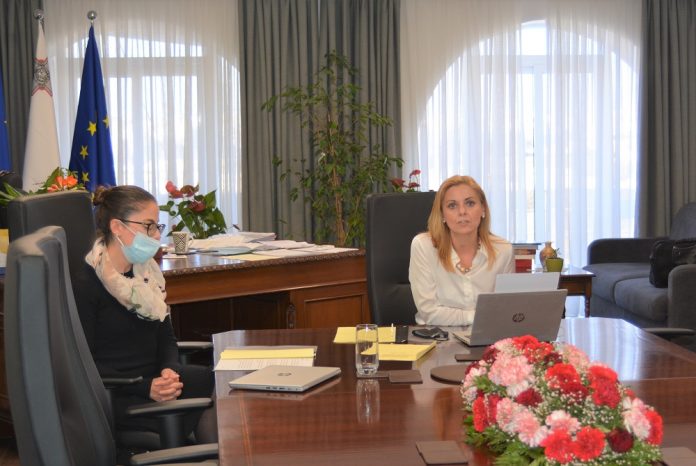Addressing the UNESCO high level ministerial meeting ‘One year into COVID: Prioritizing education recovery to avoid a generational catastrophe’, Minister for Education Justyne Caruana said that she strongly believes that we can turn challenges presented by the pandemic into opportunities.
Minister Caruana said that the COVID-19 pandemic has presented us with significant challenges, and we must be wary of the long-term consequences that need to be mitigated, following the disruptions to teaching and learning.
She stated that in Malta, we have sought to think creatively in putting in place initiatives that meet the educational needs of our children and young people and compensate for the loss of learning brought about by this pandemic.
The COVID-19 pandemic also provided us with an opportunity to strengthen Malta’s digital preparedness and digital tools in order to improve the quality and inclusiveness therein.
Minister Caruana said that in conjunction, firm in the belief that quality education for all students is best delivered in person, in close cooperation with the health authorities in Malta, schools were safely reopened in October 2020, with the introduction of over 50 mitigation measures. Until the recent closure on 15th March 2021, keeping all schools open for such a length of time has been a significant achievement.
Notwithstanding the opening of schools in October 2020, the ministry also invested in virtual schools at all levels to cater specifically for the students deemed most vulnerable.
Free online resources have also been made available via a user-friendly website, containing a wealth of recorded lessons, and built expressly to help parents, guardians, students and educators to easily access distance learning resources and lessons.
Minister Caruana said that another important initiative aimed at ensuring inclusion and access to education for all was the provision of free internet access to students in need provided during the pandemic. A computer/laptop or tablet was also provided for the duration of schools’ closure, to ensure that students that may not have the means to have a digital device pursue their studies online.
Supporting the mental well-being of all schoolchildren during this critical period and beyond also remains of utmost importance. Indeed, as we move towards this new state of normalcy, schools and educational institutions have been provided with guidelines catering for the psychosocial needs of students.
The minister continued by stating that tackling early school leavers remains an important priority for Malta and in the past years, through a number of educational reforms and targeted services, such as the setting up of an early school leaving unit within the Ministry for Education, great strides have been made in reducing the level of early leavers from education and training.
Minister Caruana said that she is therefore pleased to note that over the past decade at national level, we have witnessed a gradual and consistent reduction in ESL from 25.7% in 2009 to 17.2% in 2019.
She also said that she is confident that we will continue reducing this number in the years with a targeted holistic approach aimed at enhancing the educational experiences of our children and young people, moving away from a one-size fits all model of education to one that supports individual talents and aspirations.
In conclusion, the minister stressed the fact that international fora such as these are of utmost importance. Considering the global effect the pandemic has had on our lives, we must ensure we take stock of lessons learnt. She thus urged the fostering of greater collaboration and exchange of best practices amongst countries.
Photo: MFED










